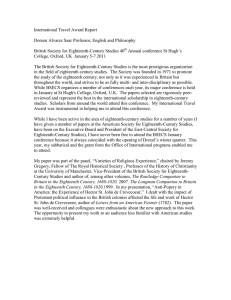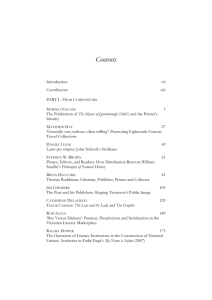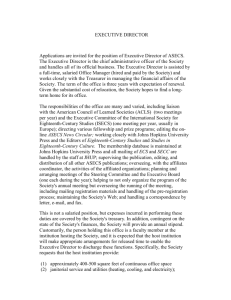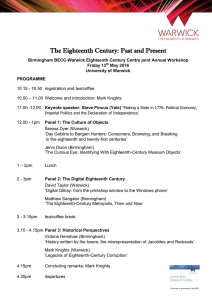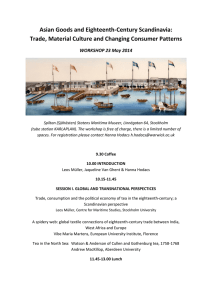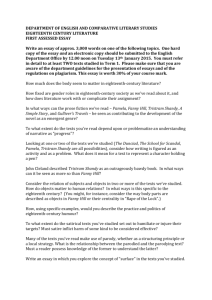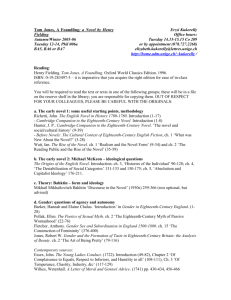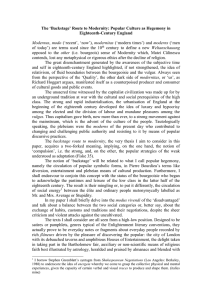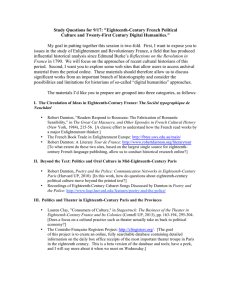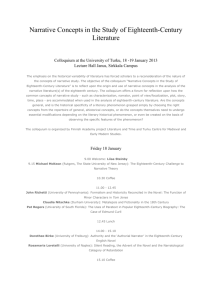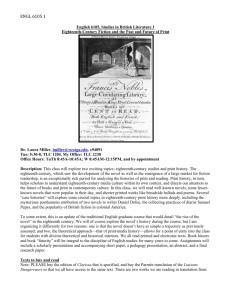Summer Examinations 2015 Eighteenth
advertisement
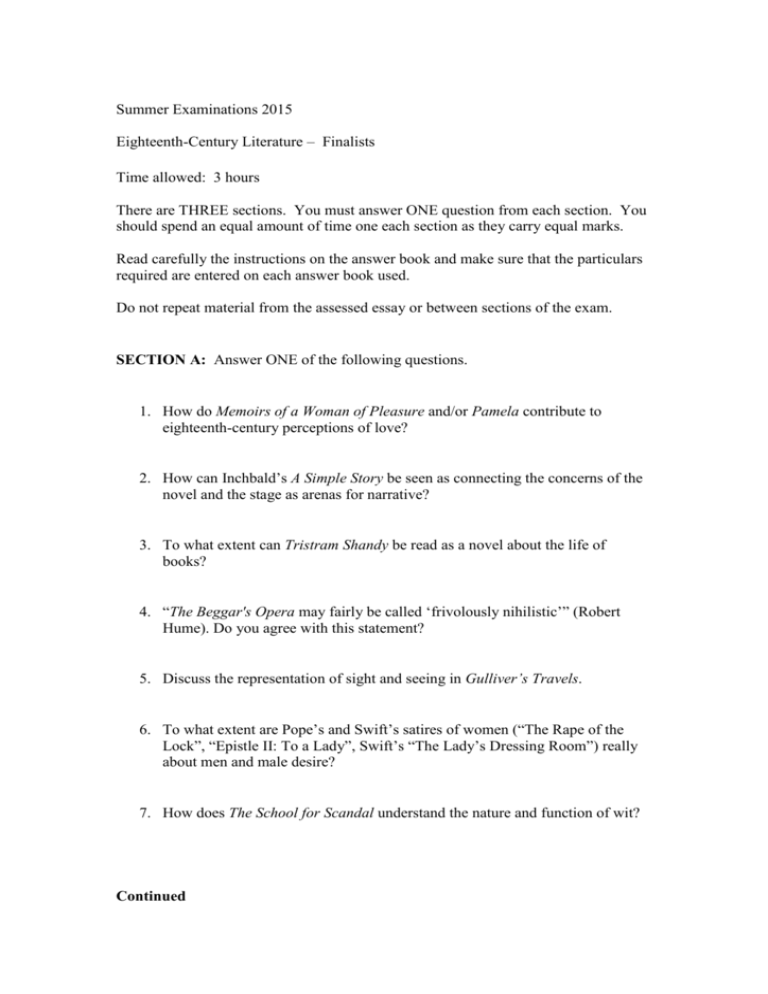
Summer Examinations 2015 Eighteenth-Century Literature – Finalists Time allowed: 3 hours There are THREE sections. You must answer ONE question from each section. You should spend an equal amount of time one each section as they carry equal marks. Read carefully the instructions on the answer book and make sure that the particulars required are entered on each answer book used. Do not repeat material from the assessed essay or between sections of the exam. SECTION A: Answer ONE of the following questions. 1. How do Memoirs of a Woman of Pleasure and/or Pamela contribute to eighteenth-century perceptions of love? 2. How can Inchbald’s A Simple Story be seen as connecting the concerns of the novel and the stage as arenas for narrative? 3. To what extent can Tristram Shandy be read as a novel about the life of books? 4. “The Beggar's Opera may fairly be called ‘frivolously nihilistic’” (Robert Hume). Do you agree with this statement? 5. Discuss the representation of sight and seeing in Gulliver’s Travels. 6. To what extent are Pope’s and Swift’s satires of women (“The Rape of the Lock”, “Epistle II: To a Lady”, Swift’s “The Lady’s Dressing Room”) really about men and male desire? 7. How does The School for Scandal understand the nature and function of wit? Continued Section B: Answer ONE of the following Questions. 1. How do Johnson’s Journey to the Western Islands and/or Boswell’s Tour of the Hebrides broach the cultural and political status of language? ------------------------------------------------------------------------------------------------------2. How does Centlivre’s Bold Stroke for a Wife conceive of identity? 3. Could Thomas Turner have been a character in an Austen novel? 4. In what ways does it make sense to think of Emma as a novel in which the achievements or problems of eighteenth-century literature are reflected 5. What are the advantages of telling a tale from the perspective of a speaking object? 6. In what ways and why is the georgic such a political form in the eighteenth century? Your answer must discuss one or more of the poems by Thomson, Duck, and Collier. 7. Read and analyze the following extract from Gray’s “Elegy Written in a Country Churchyard” (ll. 73-88). What is the relationship between writing, social class, and mortality here? You may wish to comment the poet’s use of sound, metre, diction, and/or form. Far from the madding crowd’s ignoble strife, Their sober wishes never learn’d to stray; Along the cool sequester’d vale of life They kept the noiseless tenor of their way. Yet ev’n these bones from insult to protect Some frail memorial still erected nigh, With uncouth rhimes and shapeless sculpture deck’d, Implores the passing tribute of a sigh. Their name, their years, spelt by th’unletter’d muse, The place of fame and elegy supply: And many a holy text around she strews That teach the rustic moralist to dye. For who to dumb Forgetfulness a prey, This pleasing anxious being e’er resign’d, Left the warm precincts of the chearful day, Nor cast one longing ling’ring look behind? Section C: Answer ONE of the following questions. 1. Using any combination of texts you like, discuss the emergence of the distinction between the country and the city in the eighteenth century. 2. The Enlightenment has long been cast as the age of rationality. Write an essay in which you use at least 3 texts to dispute this. 3. Are objects or subjects the real heroes of eighteenth-century literature? 4. The eighteenth century is the first period in which literacy rates, printing, and the production of paper made reading a truly popular occupation. What effects do you think this had on literature? 5. Is representing the self always a matter of performance? What evidence is given for this in 2 or 3 of the texts you’ve read? (You may also discuss this in particular relation to gender.) 6. How does the art of description change over the course of the century? 7. How do writers of the eighteenth-century understand their role within the nation? END
